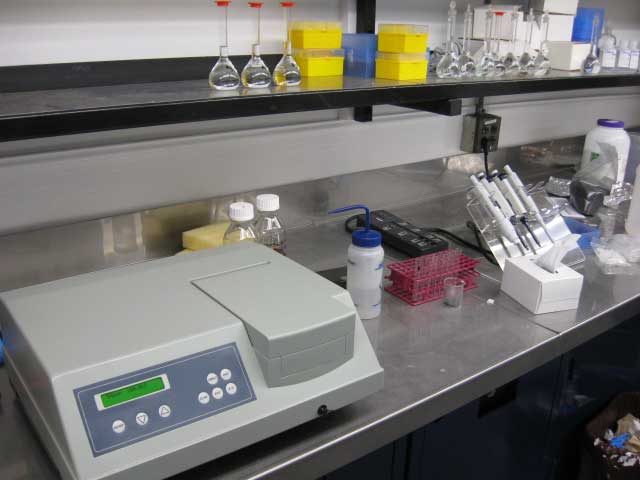NUCON has developed extensive laboratory testing capabilities both for typical methods such as the ASTM activated carbon physical property tests. The use of radioactive isotopes, which can be detected at very low concentrations lends itself to achieve much greater sensitivity measurements than normal methods.
ASTM D-28 Physical Property Testing. NUCON personnel have served on this committee since its formation. In addition to standard tests, other specialized procedures can be performed to test the performance of adsorbents.

GCMS Analysis Capability with thermal desorption/pyrolysis to determine contaminants in adsorbents.
Bench Scale Testing for evaluation of solvent recovery adsorbents.
BET Isotherm Testing to determine surface area and pore spectra of adsorbents.
NUCON facilities have received a Radioactive Materials License from the Ohio Public Health organization to receive and handle a wide range of radioactive materials.
Radioiodine Adsorbent Testing Facility. ASTM test procedure D3803 was developed to test the capability of activated carbons to remove radioactive iodine compounds from gas streams. Adsorbents can be tested under different conditions of temperature, relative humidity, bed depth and flow in order to meet nuclear power plant technical specifications while still maintaining rigid parameter control requirements.
Radioisotope tracer techniques can be used to evaluate the performance of adsorbents at concentration levels that are not possible using normal analytical methods.
The performance of adsorbents for radioactive noble gas control is measured by a NUCON laboratory test using radioactive Krypton to measure the delay coefficient.